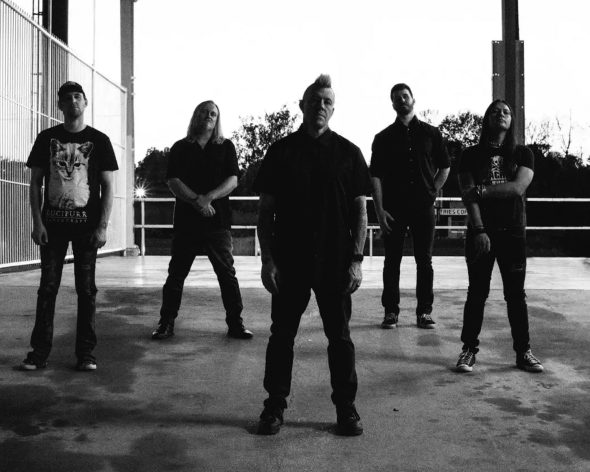Words that can make or break a band
by Tamara Halbritter
Some people say a band’s success results from 60 percent image and 40 percent talent. And we all know musicians who have made a career out of 90 percent image/10 percent talent, and we may want to hurt them, but I digress …
 As a professional writer, I’ve found that the written word can also make or break a band, because it affects your image. Using bad grammar and misspelling potential partners’ names can quickly terminate your next music deal. Other pitfalls include putting a potential label to sleep with pompous musings in your press kit about your band’s prowess, or signing a contract you wrote for $1,000 when you thought you had agreed on a fee of $10,000 (all because you missed the typo).
As a professional writer, I’ve found that the written word can also make or break a band, because it affects your image. Using bad grammar and misspelling potential partners’ names can quickly terminate your next music deal. Other pitfalls include putting a potential label to sleep with pompous musings in your press kit about your band’s prowess, or signing a contract you wrote for $1,000 when you thought you had agreed on a fee of $10,000 (all because you missed the typo).
Not a writer? That’s OK. As long as you’re conscientious, your writing can improve, along with your band’s image and earning potential. Here are 10 ways to make a great impression.
- Know your audience. If you’re looking for an agent, don’t write your query letter like you’d write a blog posting for your fans, e.g., “Hey bro, check this out. We need an agent.” Use a slightly formal tone, tell your potential agent what’s in it for him or her, and look up examples online if you need help. On the flip side, if you’re trying to increase your fanbase through social media, use an informal, conversational tone. Once you determine who your target audience is, consider what is most important to them and write in response to what they need and want to hear.
- Write an outline. To help you formulate your thoughts, one of the best tools is an outline. If you’re writing your band’s marketing plan, for instance, research other successful plans online, then outline your plan’s main goals and key activities, for example, include the five components that Kevin English recommends in his business plan template:
I. Executive Summary
II. Products and Services
III. Marketing Plan
IV. Management Plan
V. Financial Plan
Next, put in subcategories that describe which elements you’ll cover in each section. Then write each section. (Even if you’ve previously jotted down ideas, an outline gives you a logical order in which to place them.)
- Get to the point. We’ve all stood there listening to a supposed friend, coworker or relative who rambles on about some convoluted episode with this or that (insert objects here like pints of beer, baby chickens, you name it). If you’re passive-aggressive, you may have just walked away. Or perhaps you stood there and said, “Get to the point.”
Writing works the same way. Don’t let ’em walk away. Figure out the main point you want to make — your main message — then get to it early on in your writing. You probably have 15-30 seconds to get to it (the same amount of time someone will listen to your mp3 before making a judgment).
- Use subheads and bulleted lists. Another technique to help organize your writing and make it easier to read is to use subheads and bulleted lists to break up the content. In this article, I use numbered lists with boldface type for each subhead. These types of devices quickly let your reader know what’s ahead and allow them to jump to certain sections that are most interesting to them.
- Avoid jargon. You may be in love with your Fender amp, but your potential bank roller could probably give a crap. On the other hand, if a music mag requests a technical article on which guitar amps are the best for live gigs, by all means, write about technology to your heart’s content. I know I’m repeating myself, but know who your audience is, and don’t write a bunch of superfluous b.s. that will stop readers in their tracks.
- Check the facts. This is a critical tip to follow. Misrepresent an equipment manufacturer, quote some lyrics without giving the proper lyricist credit or say something untrue about an artist, and you might as well arrange to give your next 100 paychecks to your lawyer to get you out of this mess. Can’t afford a lawyer? Either check the facts or have fun being broke.
- Edit your content. Give your document to at least one other person to read to see if your main message gets across and your writing has a good flow. A professional editor will also ensure your grammar is correct and suggest alternative ways to phrase things to make them easier to understand and more relevant to your audience. See Grammar Girl for grammar tips and get the book “The Elements of Style” by William Strunk, Jr. and E. B. White (which is really more about grammar basics than style).
- Use the proper writing style. If you’re writing a news release, article or web content (pretty much anything you’ll need to write for the band), you should follow the Associated Press Stylebook, which is the journalistic style that most online publications and newspapers use. If you apply for a trademark, write exactly what the U.S. Patent and Trademark Office requires you to write. If you write a book, use the publisher’s preferred style. Figure out who your audience is, then use the accepted style.
- Format your work. Your writing also needs to look good on the page. Text should wrap nicely around images. The paragraphs should have the same space between each of them. Try to avoid widows (one line that stands alone at the start of a column) or orphans (one word that stands alone on a line; see Magazine Designing for more info). Only use one space after punctuation. A graphic designer will come in handy if you’re writing for an mp3 download card, band poster or other merch. Think of everything that you produce as a part of your image, or brand.
- Proofread for typos. Recently, a cohort sent me this example of a hideous representation of two well-known bands: Vampeer Weekend & Anttrhax. Know what Vampire Weekend and Anthrax would do if they saw this in your demo kit? I’ll give you a hint: On a good day, they’d end their relationship with you. On a bad day, there could be blood …
Bonus tip: Keep your ego in check. Having a big ego may help you get on stage and sing and play guitar while blowing bubbles and riding a unicycle, but you want to find a balance in your writing between acknowledging your achievements and wanking off. Just remember that no one likes a pompous asshole.
Follow these writing tips to set yourself apart from the talentless hacks out there. And if all else fails, keep in mind what Frank Zappa once said, “Writing about music is like dancing about architecture.”
Tamara Halbritter is a San Francisco Bay Area freelance writer and editor who develops content for music, transportation and green industries.



